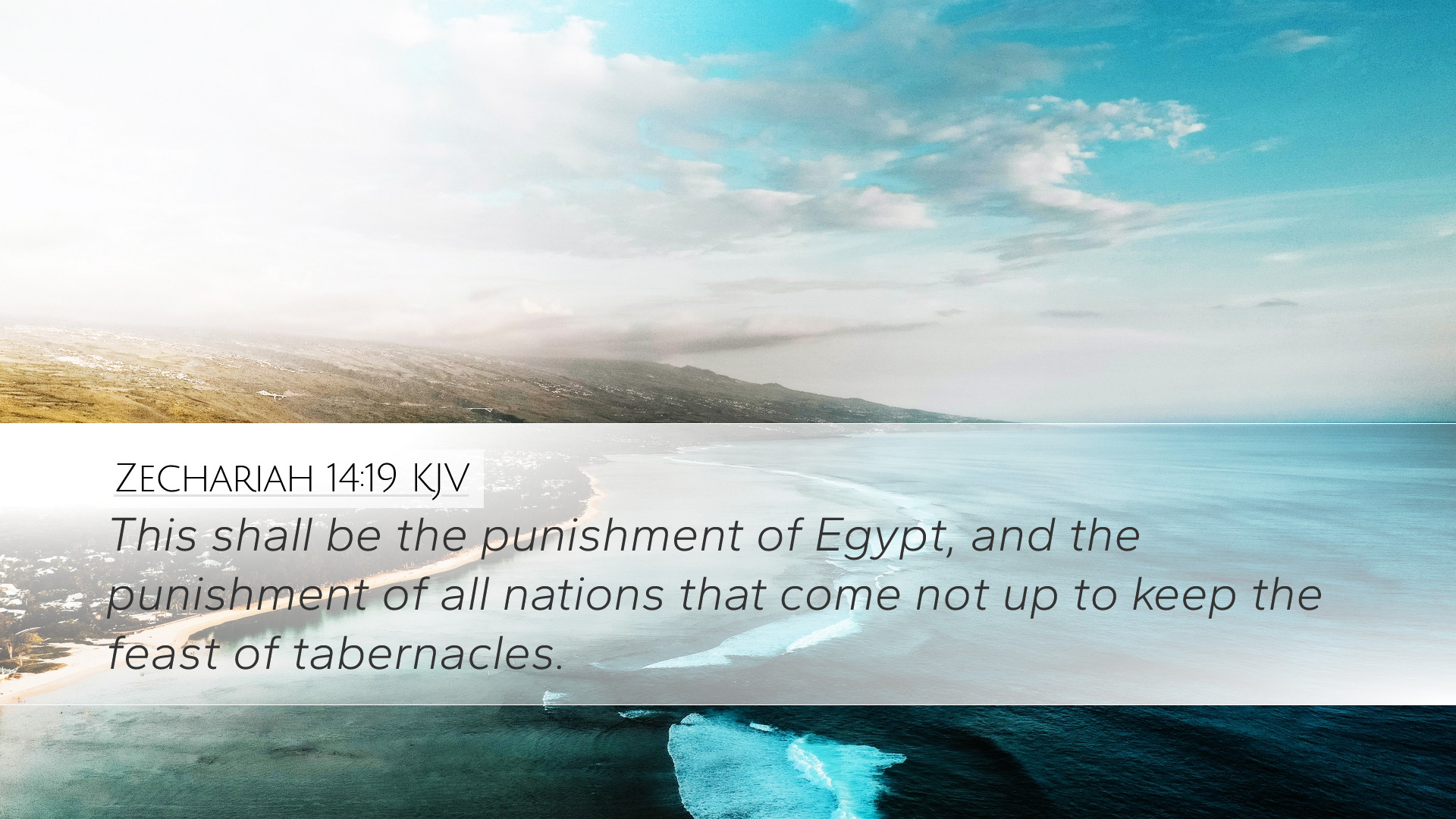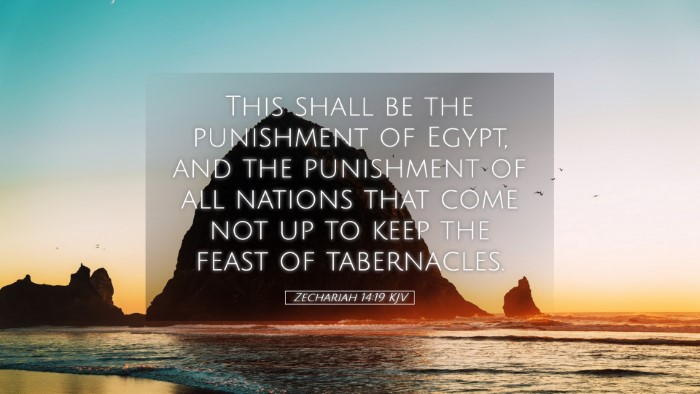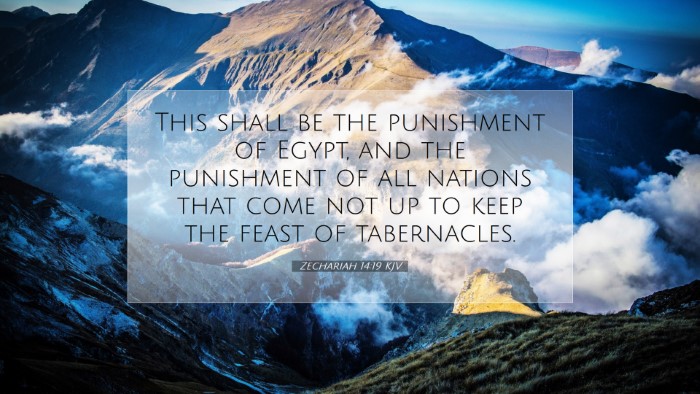Commentary on Zechariah 14:19
Verse: "This shall be the punishment of Egypt, and the punishment of all nations that come not up to keep the feast of tabernacles."
Introduction
The verse from Zechariah 14:19 speaks to the judgment that will befall the nations that refuse to keep the Feast of Tabernacles. This final chapter of Zechariah presents a prophetic vision of the Messianic age, emphasizing the universal acknowledgment of God by all nations. This commentary seeks to explore the significance of this verse by examining insights from public domain commentaries, including those of Matthew Henry, Albert Barnes, and Adam Clarke.
Theological Significance
This verse highlights the interplay between worship and obedience to God's commands. It underscores that the Feast of Tabernacles, a vital Jewish festival, holds a broader significance that extends beyond Israel to the entire world.
Matthew Henry's Perspective
Matthew Henry emphasizes that the observance of the Feast of Tabernacles is a command for all nations, symbolizing a time of thanksgiving and recognition of God's provision. Henry notes that the failure of nations to participate in this festival would result in divine punishment. He interprets this punishment as a reflection of God’s authority over the nations and His desire for all to come into alignment with His will.
Albert Barnes' Commentary
Albert Barnes offers a detailed explanation of the implications of not observing the Feast of Tabernacles. He points out that this feast commemorates the Israelites' deliverance and God’s sustaining power during their wanderings in the wilderness. Barnes explains that the neglect of this feast by Gentile nations signifies a broader spiritual neglect and rebellion against God's sovereignty. He suggests that the resulting punishment serves as a metaphor for the spiritual drought that occurs when nations turn their backs on God’s ordinances.
Adam Clarke's Analysis
Adam Clarke adds depth by contextualizing the festival within the redemptive framework of Scripture. Clarke notes that the Feast of Tabernacles represents not just a historical event but also points to the coming of Christ and the ultimate restoration of all creation. He underscores that the punishment of nations is a call to recognize God's grace and the importance of divine worship. For Clarke, the verse serves as a prophetic warning to the nations against spiritual apathy and sets a precedent for the need for nations to glorify God.
Implications for Worship
The divine desire for worship is integral to understanding this passage. The Feast of Tabernacles serves as a reminder of God's past mercies and a prophetic anticipation of future restoration. The refusal to celebrate this feast illustrates a critical posture of the heart that disregards God’s past actions and His ongoing covenantal relationship with humanity.
Cultural and Historical Context
- The Feast of Tabernacles: This festival, also known as Sukkot, was marked by rejoicing and remembrance. It celebrated the harvest and commemorated the Israelites' time in the wilderness, reflecting God's provision and protection.
- Judgment and Blessing: The context of Zechariah 14 depicts a future where God intervenes in human affairs, demonstrating divine sovereignty. The absence of nations in honoring this feast signifies their estrangement from God.
Pastoral Applications
Pastors are called to reflect on the significance of worship in their congregations, encouraging them to embrace times of thanksgiving and recognition of God’s sovereignty. Zechariah 14:19 invites leaders to challenge their communities to engage with corporate worship as a reflection of unity and obedience before God.
Call to Action:
- Encouraging Participation: Pastors should actively encourage their congregations to participate in communal worship and festivals that celebrate God's provision.
- Teaching about Worship: It's imperative for leaders to teach on the importance of worshiping God in spirit and truth, emphasizing both personal and communal aspects of faith.
- Modeling Praise: Pastors should model the joy and reverence in worship that embodies acknowledging God's history with His people.
Conclusion
In conclusion, Zechariah 14:19 serves as a potent reminder of the universal call to worship and the consequences of neglecting divine ordinances. This verse encapsulates the Messianic hope and the anticipated recognition of God by all nations. Through the combined insights of Henry, Barnes, and Clarke, we discern the need for a posture of worship that acknowledges God’s past mercies and anticipates His future grace.


